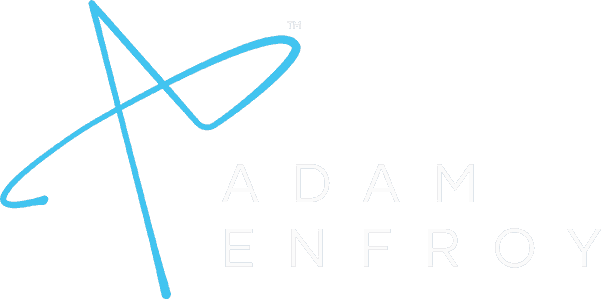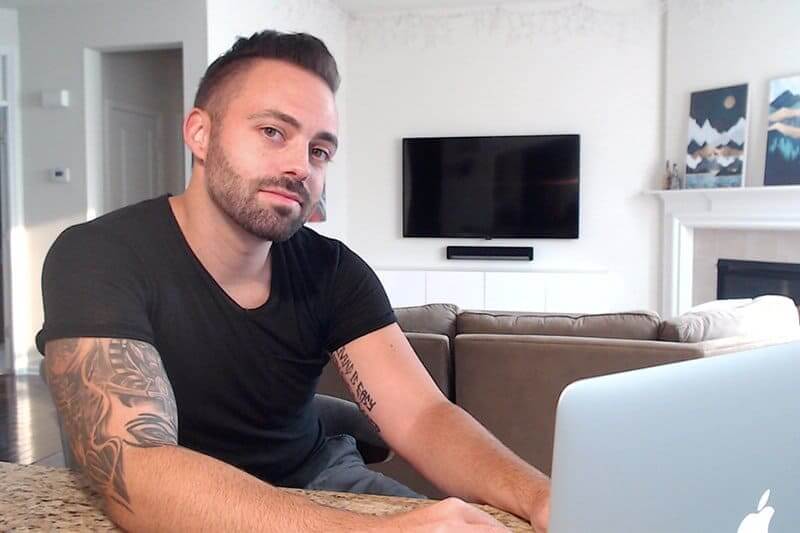What Is A Content Creator? (Types, Skills And Examples)
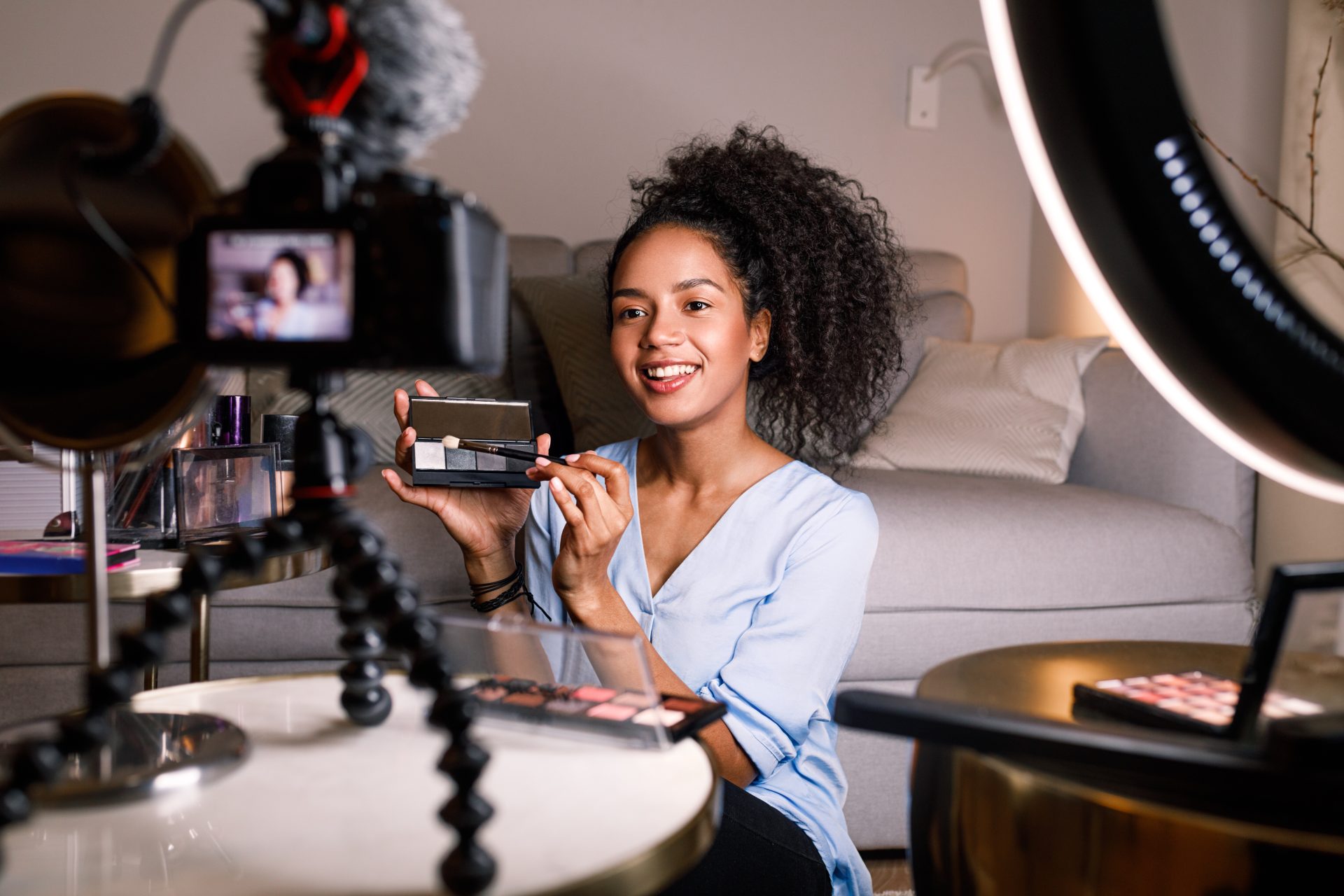
Essentially, a content creator publishes stuff online and makes money by providing value through their content.
But there’s a little more to it than that. In this post, I’ll explore what a content creator is and show you:
- the types of content creators
- the skills they possess to help them succeed
- examples of successful content creators you might not have heard of.
Let’s get right to it.
Types of content creators
The digital world is made of content. Whether it’s the written word, videos, images, audio, or any combination of the above, content runs the world.
Think about this: Is there…
- a person on social media whose message you like? That’s a content creator. The person might create posts, shoot short videos, publish infographics, etc.
- a YouTube channel you’re subscribed to that always produces high-quality videos? The person behind it is a content creator.
- an email newsletter you get every Monday filled with valuable content? Again, there’s a (consistent) content creator behind this.
Here’s a question that comes up regularly: is a content creator the same as an influencer?
I don’t think it’s exactly the same, though the two share lots of similarities.
A content creator creates content as a way to share ideas. Whether it’s to educate or entertain (or both), the content is the main focus.
Influencers use their platform and followers to influence people’s opinions or actions. Whether this means getting followers to click on a link, subscribe to a newsletter, buy a product, etc., the aim is to get people to take specific actions.
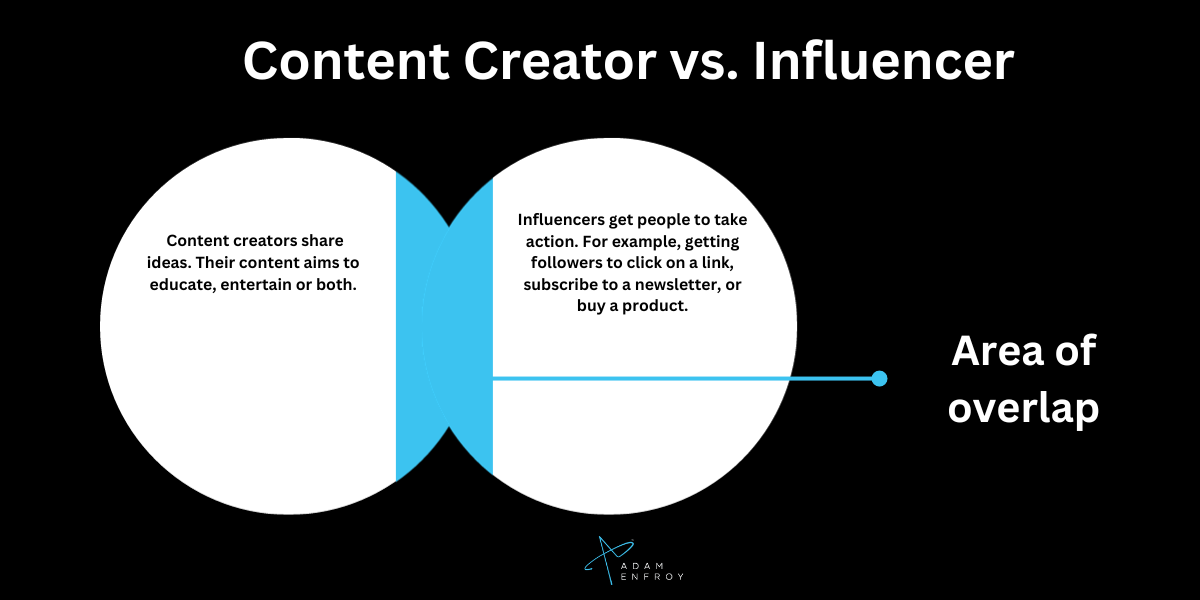
It’s impossible to be an influencer without being a content creator.
It’s also pretty rare to be a content creator without also being an influencer.
That’s why both concepts go hand in hand, even if they’re not the same.
The multiple hats of a content creator
Speaking of overlap, a content creator needs to wear multiple hats. Especially when starting out, the content creator needs to develop ideas, produce them, and distribute them.
I explore more of this in my article dealing with what a content creator does. For now, here’s a very quick look at each of these “hats”:
- Ideation: A content creator needs access to a steady source of ideas. The person needs to be able to filter whether ideas are worth pursuing or not.
- Production: Let’s say a content creator decides to move forward with an idea. What format will work best for the creator and their audience? Can the creator use the same ideas in multiple formats? These are all questions a content creator must answer.
- Distribution: How will people be able to find the creator’s content? In a world where everyone is trying to shout the loudest, how does a creator differentiate their content from others?
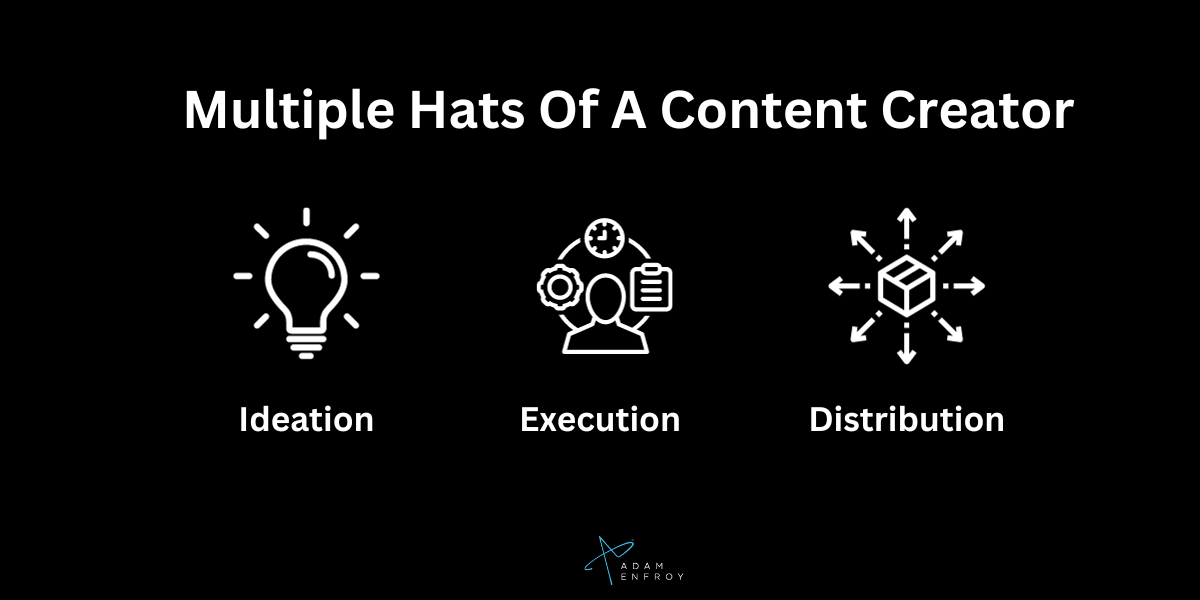
Here’s a workflow example from a blog content creator (a.k.a a blogger).
First, the blogger decides which keywords to write about:
- Which keywords are people interested in?
- Which ones can be easily monetized?
There are plenty of SEO tools that can help with the process.
Next, there’s production. With blogging, the main output will be in text format, images, and potential videos. The blogger will create the content (or outsource it), focusing on providing the best solution to the reader.
Finally, the blogger will publish the content. Once the content is live on their blog, distributing it to relevant sources will help more people discover it.
Here’s another example from the perspective of a YouTuber.
The content creator will first come up with potential video ideas. Then, they choose the one they can speak about and would best resonate with their audience.
The YouTuber then creates an outline covering the main talking points of the video. The person shoots and edits the footage. Like a blog post creation, the YouTuber might outsource parts of this process.
Finally, the content creator publishes the video on YouTube for others to find.
In both scenarios, the creator can leverage the skills acquired during the various phases of content creation. In other words, improving your skills in any area will result in a better content creation process.
Skills and qualities of a content creator
Let’s talk more about skills and how these can help you become a (more successful) content creator.
Adaptability
Things won’t go according to plan (most of the time). You’ll have to change plans as you understand what works and what doesn’t. In this regard, building your “figure it out” muscle isn’t always easy—but it’s crucial.
The good news is that you can overcome many challenges with a quick Google/YouTube search. Any problem a content creator faces has likely been someone else’s problem. A problem this person overcame, documented, and then shared the solution for.
Audience Understanding
Next, understanding what people want is important. As you build up your audience, don’t be afraid to dive deeper into their:
- hopes
- desires
- wants
- fears
- pain points
By doing so, you’ll be able to create videos they look forward to consuming. This makes content creation profitable.
Communication Skills
Next, communication skills are essential. You might have the best content in the world, but if you can’t keep people engaged enough to consume it, you’re not helping anyone. Least of all yourself.
The best content creators are the best communicators. They can hook their audience (through creating relevant content), keep them engaged (through their delivery), and influence them to take action.
The other day, I came across this TED Talk about how a PowerPoint is not the same as a presentation.
I think this speech is a great reminder of the importance of communication skills. A lack of communication skills means that no matter how valuable your content is, no one will benefit from it.
The opposite also holds true.
A “bad message” delivered in a way that resonates with an audience will have more impact than a great message delivered badly.
Is that right? I don’t think so—but no one said life would be fair.
The solution? Improving your communication skills.
Charisma
A great content creator also has charisma. But what does that mean exactly? For me, the following illustration describes it well:
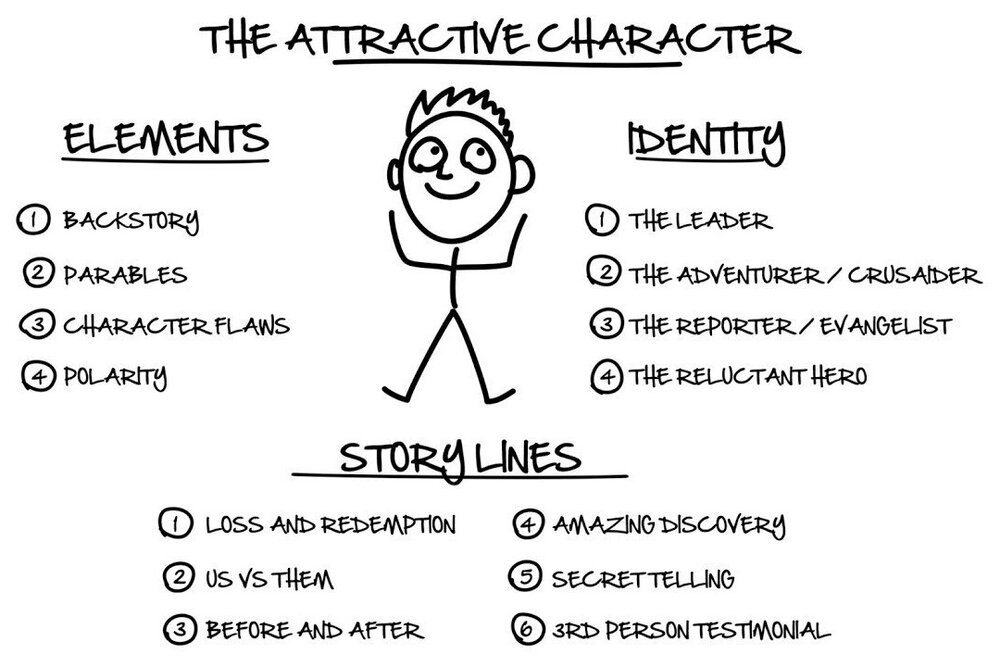
Source harbormarketingagency.com
Multiple factors go into charisma. Think about your favorite content creator. How many elements from the image can you spot?
Let’s think about Adam. You can find his backstory on the About Me page. He shares stories from his early childhood that show his character flaws and that he has improved over time.
Next up, in the identity column, he’s a leader. He’s the face behind both the blogging brand and the YouTube channel. At the same time, he’s not a loud leader. On a recent livestream, I heard him say that he loves the “simple life” of business and spending time with his wife and dogs.
No loud cars or overhyped way of living here.
I think we can also consider him somewhat of a reluctant hero. He’s found out what worked for him, and since he’s “a teacher at heart” he’s sharing what he’s learned with others.
Finally, Adam uses lots of before and after stories. He shares how things worked before and how they improved after making the right changes. Sometimes, the stories are framed as secrets. He also uses lots of 3rd person testimonials when it comes to selling.
I think the above sums up why thousands of people look up to Adam as an attractive character and a charismatic leader.
Another point to consider: a charismatic leader can become much more than just a content creator. The person can build a community of loyal followers.
And for me, that’s when real influencing happens.
Comfortable Working Alone
Finally, a content creator must be comfortable working alone. Many content creators start working on their hustle to test the waters, make a side income, or a combination of the two. Generally, this involves working long hours by oneself as you go through a trial-and-error period.
Examples of successful content creators
Here are a few examples of successful content creators to show you just how diverse and effective content creation can be.
Adam Enfroy (blogging + YouTube)
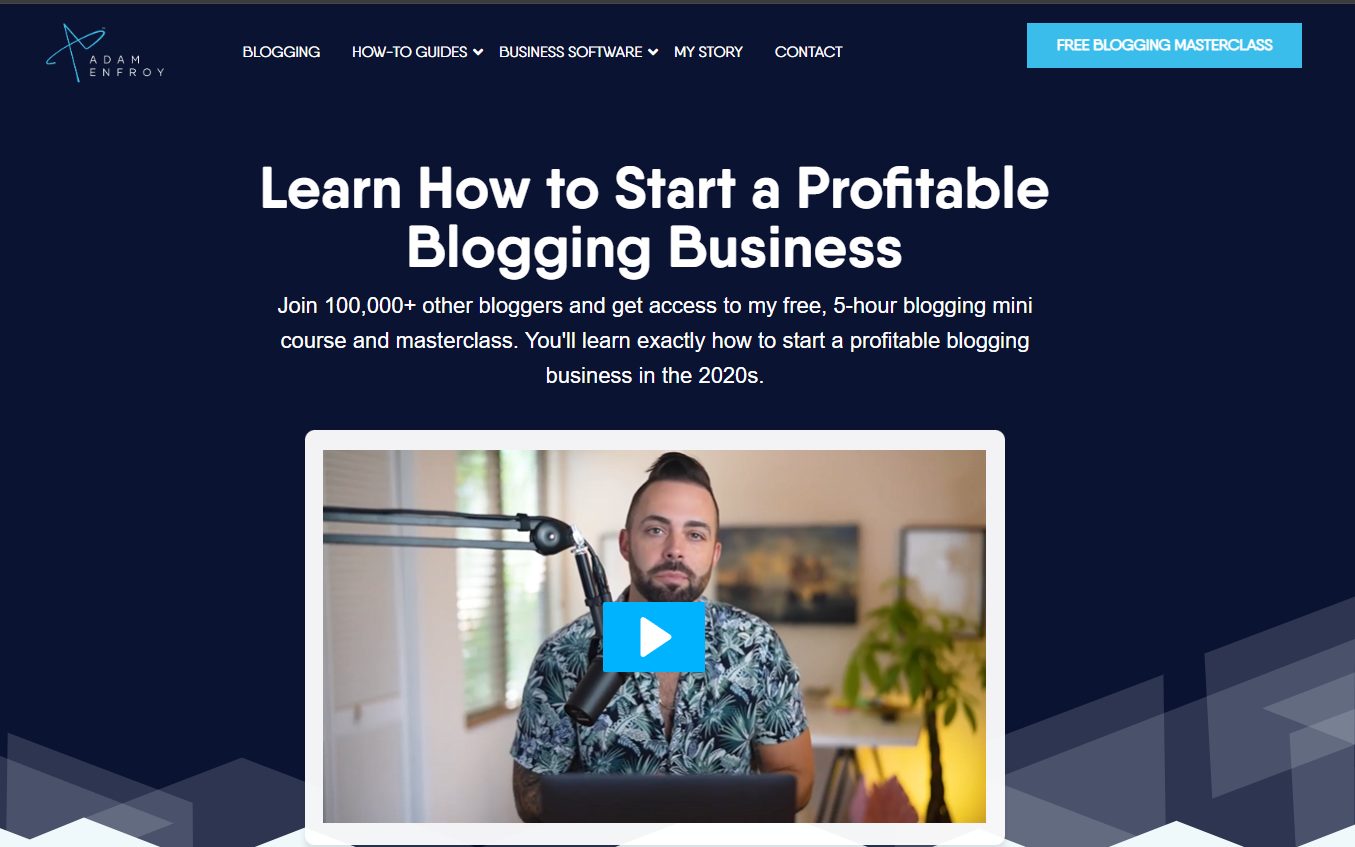
I know I’ve spoken about Adam in the previous section but let’s quickly go through his journey as a content creator.
Adam started content creation in the form of blogging and built a successful business through that. He then hired a team and branched into YouTube.
In the meantime, he leveraged the audience he built through content creation to develop a blogging course and (more recently) a YouTube course.
This is an excellent example of how being a content creator (with charisma) can help you build an audience that makes you real income.
George Sidiropoulos
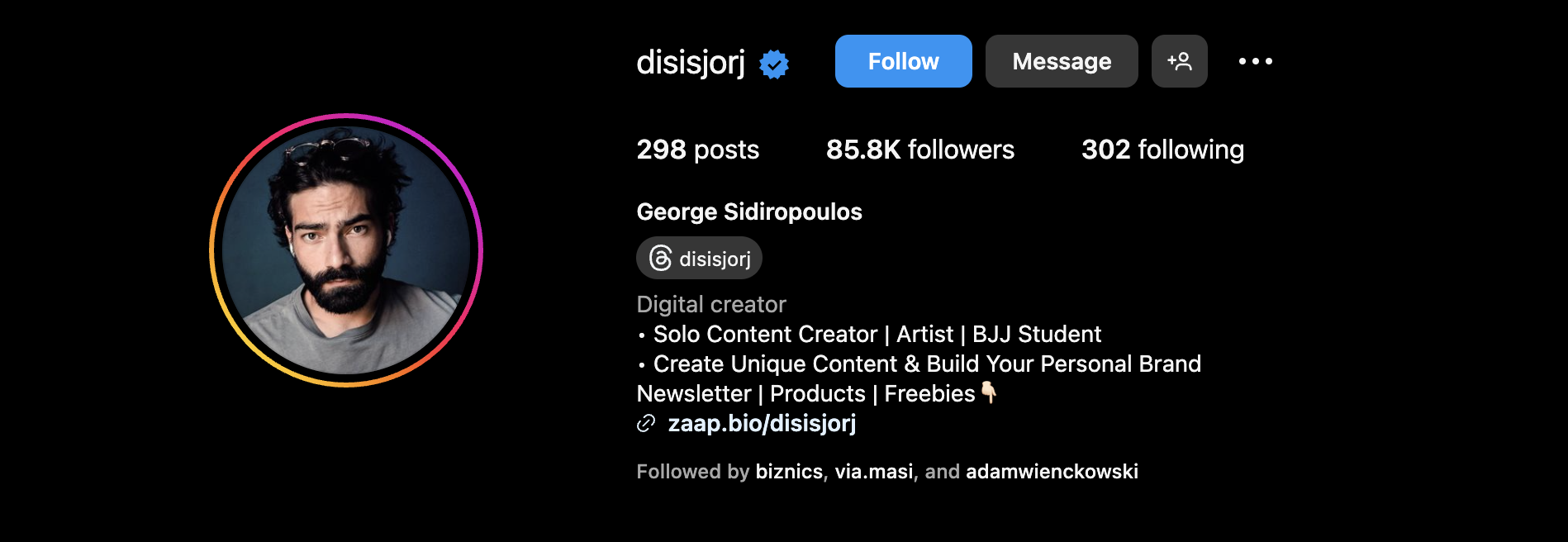
Here’s an Instagram example. George is a solo content creator who creates reels (i.e., short videos on Instagram) focusing on topics like:
- Storytelling
- Video editing tools
- Sound effects
- Content creation mistakes to avoid
Through his Instagram bio, he directs people to products he sells (or offers for free to build up value). These products include live cohorts, sound design products, free editing assets, and more.
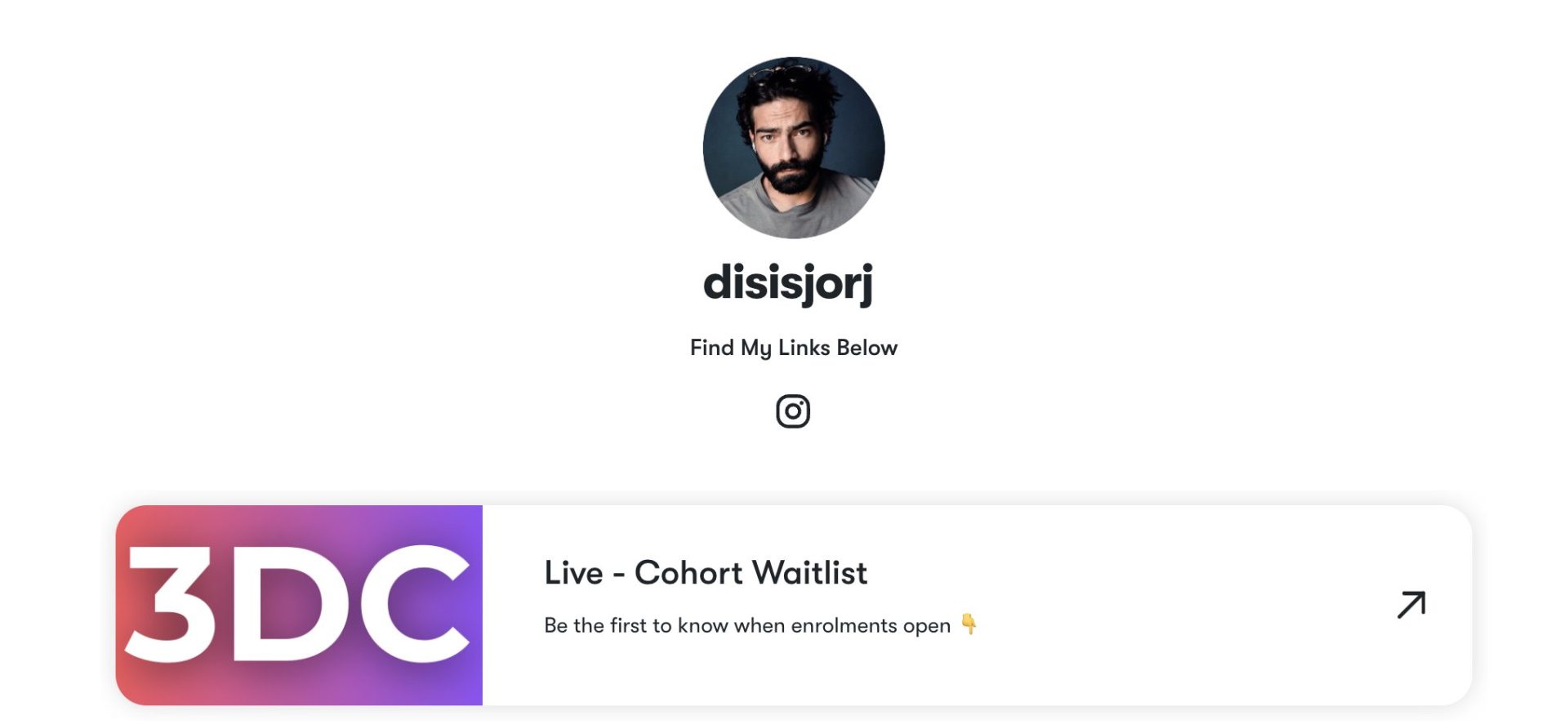
He also offers people the chance to join his newsletter:

As a result of his Instagram, he’s building up an audience of people who like the content he produces. Over time, this audience recognizes him as a subject expert in what he teaches which means they’ll more likely end up using his products and services.
Modern Wisdom
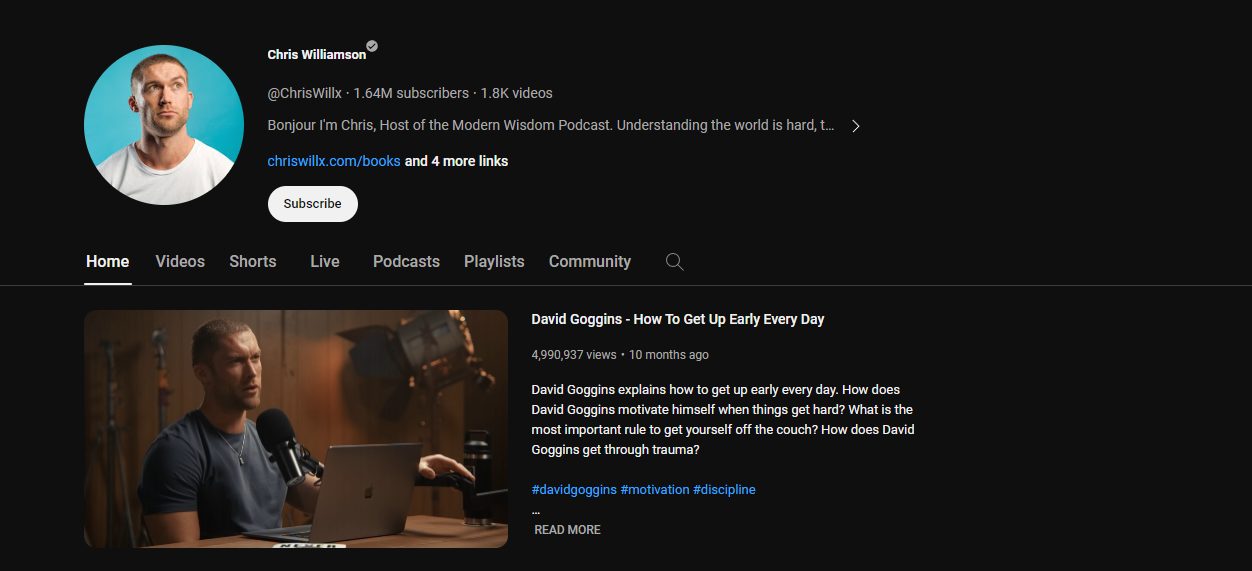
Another of my favorite content creators is Chris Williamson. He shares content through his podcast and YouTube channel.
His audience growth is quite impressive. He had an audience of 20K subscribers on YouTube in January 2020. As of December 2023, he now has 1.6+ million.
It’s safe to say this growth happened thanks to the quality of the information he shares together with the high-profile guests he has on his show.
He creates content around topics close to his heart, including:
- Self-development
- Inspirational quotes
- Health and fitness
- Masculinity
- Business
Chris is very consistent with his publishing (generally posting 3 times a week).
He recently also started a newsletter where he shares more of his thoughts:
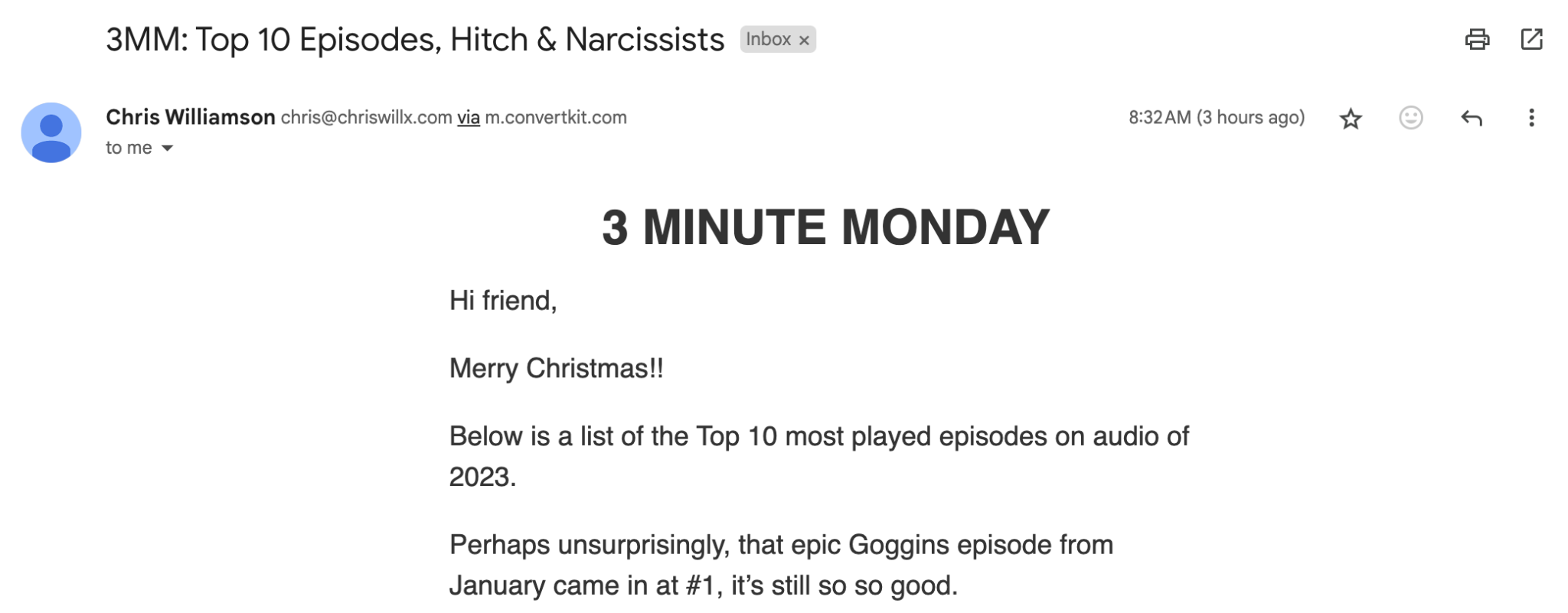
What do all these content creators have in common?
Here’s a quick list:
- They know how to capture attention.
- They have an audience (built over time) that loves their content.
- They are consistent in their publishing.
- They speak about the topics they’re passionate about.
- They can influence a massive amount of people to take specific actions.
What does all this mean for you?
The truth is, that as soon as you hit that publish button, you’re a content creator. Want to get better at it?
Developing the skills to become a successful content creator takes time, dedication, and a clear understanding of who you are. If it helps, remember that everyone started from zero and kept at it till they hit their goal.
